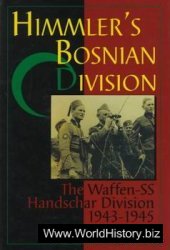Long or short, full or thin, the works mentioned in the preceding sections all treat wide swaths of imperial history and, with the exception of Jerome, focus on things Roman. The works mentioned briefly and for the sake of example here lack one or the other trait, or both. An important work with a narrow chronological scope is Josephus’ Jewish War, which narrates a single war in a single Roman province, but does so with the advantage of personal involvement (Josephus commanded troops against the Romans at the beginning of the war and spent its later years as a prisoner in the Roman general’s entourage). The bulk of the work (books 1-6) is spent on five years’ events (66-70); Book 7 continues the narrative of the rebellion’s somewhat sporadic course (including the siege of Masada) subsequent to the fall of Jerusalem (see further Smith, this volume). Narrowness of focus rather than chronological scope characterizes works such as Eusebius’ Ecclesiastical History (from Jesus to the fourth century) and Orosius’ History against the Pagans (from creation to the early fifth century). In both works the events of Roman history reported are tangential to the author’s main purpose: Eusebius was sketching the history of the church, Orosius trying to show that life was worse before Christianity. Lactantius’ On the Deaths of the Persecutors is limited in both temporal scope - principally 303-13 ce - and purpose: pointing to the moral that those emperors who persecute the Christians pay in the end. It is nevertheless an important source for the political history of Rome in that period, giving, to cite just one example, a detailed account of the abdication of Diocletian in 305 (18-19). Many more works could of course be mentioned here, but it is sufficient to have indicated the category.
Reckoning together all of the literary sources, we have some information about the whole of the period between the death of Caesar and the death of Constantine. Most richly documented is the early Julio-Claudian period, for which we have Tacitus’ Annals, Dio (complete), biographies by Suetonius, the contemporary report of Velleius, and two epitomes of Livy’s last books (not to mention all of the later summary histories). Next best is the period from Commodus to Elagabalus, where in addition to contemporary reports by Dio (whose full text of the years 217-18 is preserved in a somewhat damaged manuscript of 79.2-80.10) and Herodian, we have reasonably reliable biographies in the Historia Augusta and six summary histories. In about 222, however, the evidence begins to thin: first the Historia Augusta’s quality falls off, then Dio’s text ends, then Herodian ends. From 238 up to the reign of Constantine the literary sources are frustratingly scant.




 World History
World History









